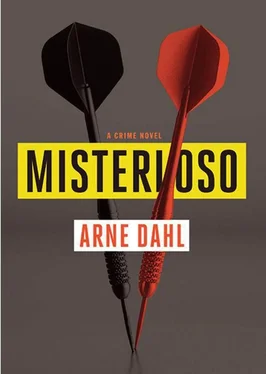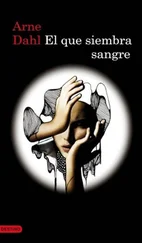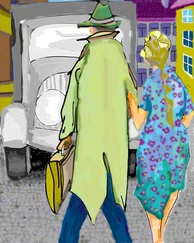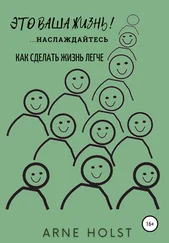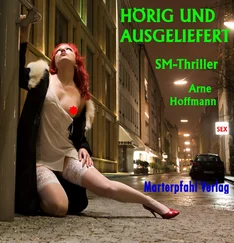Lidner was pressing his hand to the gush of blood from his eyebrow. He was now a different man.
“There weren’t supposed to be two police officers,” he said quietly. “There was always only one.”
Hultin stood up. “You’ll be remanded into custody immediately, of course,” he said as he opened the door. “You’ll be charged with the attempted murder of a police officer, but the later indictment will include much more. I’m sure I don’t need to remind you to get yourself a lawyer.”
Out in the corridor Jan-Olov Hultin rubbed his hands together. Then the trio briskly continued to the most isolated section of police headquarters. Hultin had a card and a code that gave him access to these dimly lit passageways. He yanked open an office door.
There sat two solidly built gentlemen in their forties, wearing identical leather jackets. They looked up from their computers, and in only a second both men pulled out huge pistols and aimed them at Hultin, Söderstedt, and Norlander.
“What a pleasant scene,” said Hultin calmly.
“This is a restricted area, Hultin. You have no right to be here,” said Gillis Döös harshly. “Get out before we call the guard.”
“None of us is going anywhere until we find out what the hell happened with the investigation that Mr. Max Grahn buried. The one where Valery Treplyov was found murdered and lying inside a locked bank vault in Algotsmåla, Småland.”
Döös and Grahn looked at each other.
“That’s confidential,” said Döös, sounding slightly different.
“Since when do you have the right to pretend to be part of the NCP? And what the hell ever happened to the exchange of information? Do you realize how much you’ve delayed this case with your damned secrecy and your grotesque meddling? Do you realize how many of your precious businessmen have died unnecessarily? Murdered as a direct result of your actions?”
Max Grahn cleared his throat. Perhaps he turned a little pale.
“We had our sights on Igor and Igor long before they became relevant to this case. When that zealous inspector from Växjö called, we went down there at once; we realized that it was Treplyov that they’d found inside the vault. Igor and Igor were well established in that part of Småland. We knew that a major Soviet infiltration was taking place in Sweden, and that it was big as hell.”
“And you let us struggle our way through the whole damn Russian mafia lead without giving us a single piece of information?”
“We’ve been working two lines the whole time,” said Döös, “the Russian mafia lead and the Somali lead. Both of these investigations are top secret, matters of national security.”
“What the hell is the Somali lead?” shouted Hultin.
“Sonya Shermarke, for God’s sake!” exclaimed Döös. “The cleaning woman that you’ve totally ignored. The one who ‘found,’ as she said, Director Carlberger’s body. It turns out that she, along with a whole group of potential Somali terrorists, have been living in Sweden illegally. She pretended to be a cleaning woman and finagled her way into the homes of many influential families in Djursholm. We’ve been interrogating her and her cohorts for over a month now. And soon we’ll have them.”
“Oh, now I remember,” said Hultin acidly. “That’s right! Seven Somali children, their five Somali parents, and a pastor from Spånga. What an elite band! Sentenced to be deported, terrified, and crammed into a little two-room apartment in Tensta, hidden by the local Swedish church. What a great coup. Seven children. Have you been interrogating them too for a month in your basement dungeon?”
“Do you know what a modern-day terrorist can use children for?” Döös said in all seriousness.
“For the sake of my incipient ulcer, let’s drop the subject.” Hultin looked conciliatory. “What have you managed to make of the blinded Treplyov in Algotsmåla?”
“Clearly a settling of accounts in the underworld,” said Grahn. “Somebody wanted to take over Igor and Igor’s territories. Mafia factions from the Soviet Union today are conducting a more or less open war for power in the Swedish underworld.”
“And the connection to the Power Murders?” said Hultin mildly.
“We’re investigating the links between the Somalis and the Russians. We think it’s a joint conspiracy based on old Communist values.”
Hultin stretched his back, still with a good-natured expression on his face. Söderstedt and Norlander feared the side effects of a well-aimed headbutt inside such a small space. Instead Hultin delivered a metaphorical headbutt.
“For over a month you’ve known that Igor and Igor were an important focus of our investigation,” he said gently. “If nothing else, you must have seen the announcement of the manhunt published in the newspapers. You have willfully and intentionally misled what the head of the NCP, as recently as yesterday on TV, has called the most important investigation in Sweden since the Palme case; in addition, you used the NCP for a highly irregular, highly illegal cover-up. All of these acts are not only a dereliction of duty, they are felonies. I’m going straight to the head of the NCP to inform him of your illegal activities, and I anticipate that both of you will be off the force by this afternoon, latest. You can start packing right now.”
“Are you threatening us?” Döös stood up.
“I prefer to think of it as a promise.” Hultin smiled politely.
Gunnar Nyberg was being fed through a tube. It protruded from the bandages that covered him almost entirely from the crown of his head to his neck, and large portions of soup were running through it. His eyes were the only things visible, and they were beaming with joy.
“As I’ve just told Nyberg,” the doctor explained to the three visitors, “we’ve determined that, in spite of everything, his throat should heal completely. The bullet missed the carotid artery by half an inch; it missed the larynx by about the same distance, but it passed through the upper part of the esophagus, just below the pharynx. He’ll soon be able to sing again, but it will take a while before he can eat normally. In addition, his left zygomatic bone and left maxillary bone were shattered. He suffered a significant concussion and a number of bruises and burns on his face, and on the area from his shoulders up. He has four broken ribs, a fractured right arm, and a wide assortment of minor cuts and burns over most of his body. But,” said the doctor, “he seems to be in good spirits.” And then he left them alone.
Nyberg had obtained a little blackboard on which he could write messages in his wobbly left-handed script. “Igor?” he wrote.
Hjelm nodded. “Alexander Bryusov. That idiotic tackle you made on his car uncovered the whole connection between Viktor X and Lovisedal, a very real connection. Bryusov is apparently going to be the star witness.”
Nyberg wrote, “Not our man, right?”
Hjelm had to ask Chavez and Holm for help in deciphering his scrawl.
“No,” said Chavez. “Bryusov isn’t our man. Our man is an ordinary Swedish bank teller by the name of Göran Andersson.”
The twitching under the wads of bandages could almost be interpreted as a laugh.
“We’re conducting a nationwide manhunt for him now,” said Hjelm. “But you may be back at work before he’s arrested.”
Nyberg shook his bandages emphatically. The tubes that connected him to the surrounding machinery swayed alarmingly. One apparatus began beeping, as if in fear. He wrote, “Damn it all, no, you’ll get him in a couple of days.” Then he erased the words and wrote a new message: “Missa.”
“Missa what?” said Hjelm.
Читать дальше
